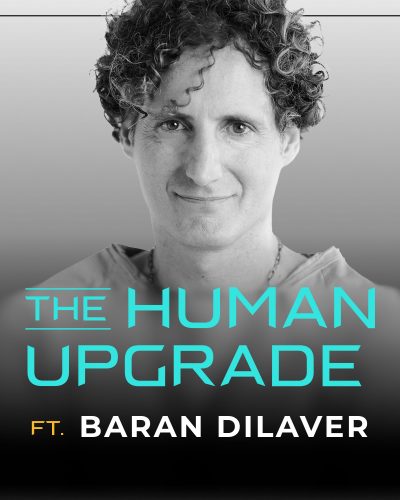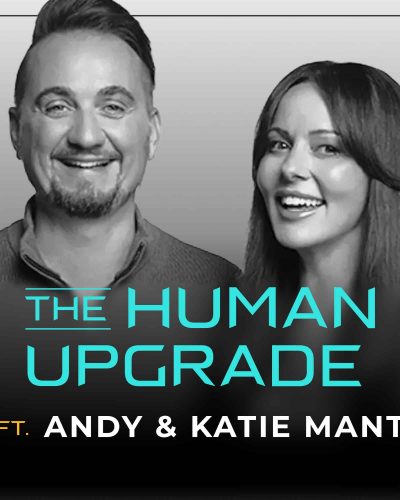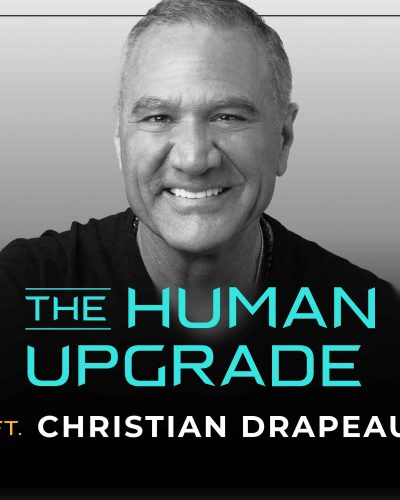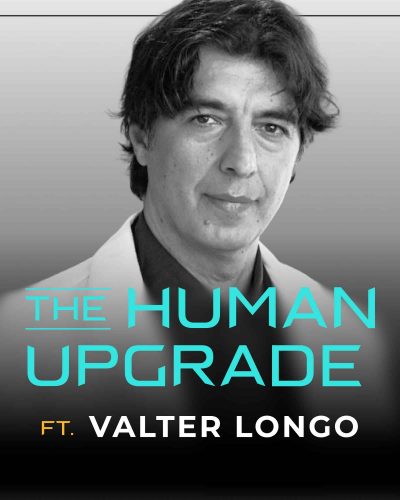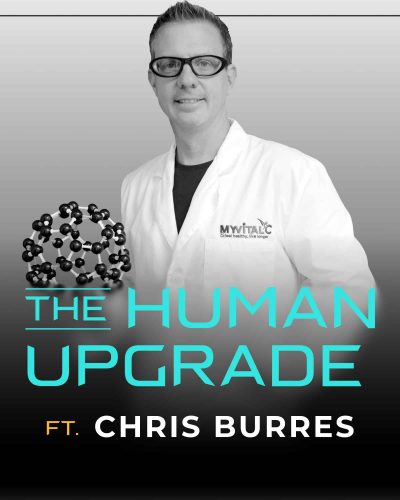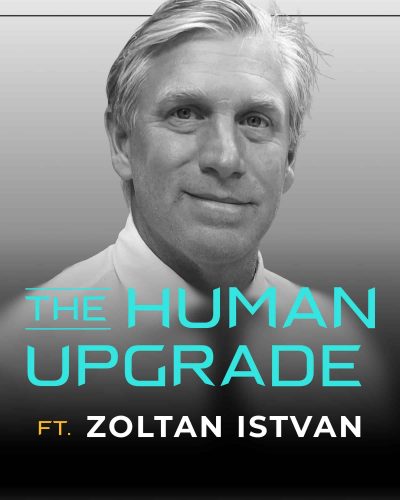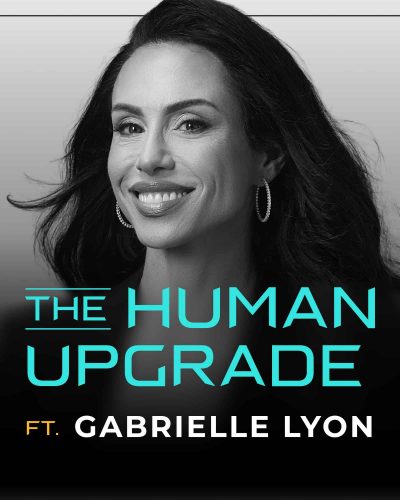In this Episode of The Human Upgrade™...
… you’ll learn why developing your attributes may be more important than skills when it comes to getting more out of yourself. Attributes are wired into your internal circuitry, always running in the background, says Rich Diviney. You’re born with attributes. They’re elemental and considered innate traits—not to be confused with personality traits.
Rich, a retired Navy SEAL commander, bestselling author, and leadership and human performance expert, explains how attributes determine how you absorb, process, and respond to the world around you. By knowing this, you’ll be able to assess your own attributes and put them into action with SMART steps.
In his book, “The Attributes: 25 Hidden Drivers of Optimal Performance,” Rich shows you how mindset, optimism and becoming uniquely resilient to stress can help you become a better human. His approach identifies core attributes needed for success in personal or professional tasks.
His ability to choose the right people to be in elite performance groups—like the U.S. Navy SEALs—could be considered a superpower. As the officer in charge of training for a specialized command, Rich was part of the SEAL selection process. He pared down a group of exceptional candidates to a small cadre of the most elite optimal performers. How did he do it? By looking at attributes.
It’s Rich’s belief that SEALs are not born extraordinary. Instead, they’ve mastered their own mindset to get the most out of their innate abilities to make themselves extraordinary. He believes we all have the power to do this.
“The same things that Navy SEALs use or do whether consciously or unconsciously are the same things that a 10-year-old can do at a spelling bee or the same things that someone can do in a workplace or in traffic.”
Rich Diviney
In “The Attributes,” you’ll find examples of attributes within five distinct categories plus a couple more that don’t fit so neatly:
- Grit
- Mental Acuity
- Drive
- Leadership
- Teamability
So, what are attributes and how are they different than skills?
“A lot of times we get seduced by skills, and we don’t think about attributes,” Rich says. “And the reason is very simple: skills are not inherent to our nature. They’re very visible, which means they’re very easy to assess, measure and test and you can put scores around them and stats around them. … Attributes are inherent to our nature. We’re all born with levels of adaptability and situational awareness and resilience. Attributes don’t dictate our behavior or director behavior; they inform our behavior.”
A person’s skills help determine how they will respond in a predictable situation; attributes inform how they will respond when things are unpredictable, Rich says in his book.
- Attributes are elemental: we are born with them, unlike skills which we can pick up by emulating other people.
- Attributes inform, rather than direct, behavior.
- Attributes are difficult to assess, measure, and test.
- Sometimes attributes are overlooked because we don’t even know we have them (they operate in the background).
“We’re all automobiles, but we’re different types,” Rich says. “Some of us are SUVs, some of us are Ferraris, and some of us are Jeeps. It behooves us to lift our hood and figure out what engine are we running with. And that helps us identify and understand our performance.”
More about Rich Diviney: He served more than 20 years with the U.S. Navy, completing more than 13 overseas deployments, 11 of those in Afghanistan and Iraq. During his service, he led the creation of the first-ever “Mind Gym” that helped special operators train their brains to perform faster, longer, and better in all environments—especially high-stress ones. This approach fused physical, mental, and emotional disciplines. He’s also worked with thousands of business, athletic, and military leaders from organizations such as American Airlines, Meijer Inc., the San Francisco 49ers, Pegasystems, Zoom, and Deloitte to help them achieve optimal performance. He studied political science, government and history at Purdue University. He also attended Embry-Riddle Aeronautical University.
Enjoy the show!
LISTEN: “Follow” or “subscribe” to The Human Upgrade™ with Dave Asprey on your favorite podcast platform.
REVIEW: Go to Apple Podcasts at daveasprey.com/apple and leave a (hopefully) 5-star rating and a creative review.
FEEDBACK: Got a comment, idea or question for the podcast? Submit via this form!
SOCIAL: Follow @thehumanupgradepodcast on Instagram and Facebook.
JOIN: Learn directly from Dave Asprey alongside others in a membership group: ourupgradecollective.com.
- Our Partners
- Links & Resources
- Key Notes
Control Blood Glucose:
https://pendulumlife.com, sign up for membership to get monthly supply delivery, use code DAVE20 to save $20 on your first shipment
Tasty Keto Bread & Chips:
https://www.uprisingfood.com/DAVE, use code DAVE to get $10 off the starter bundle
Website: theattributes.com
Book: “The Attributes: 25 Hidden Drivers of Optimal Performance”
All 25 Attributes & Assessment: theattributes.com/all-attributes
Instagram: instagram.com/theattributes/
Twitter: twitter.com/richdiviney
Facebook: facebook.com/theattributes/
YouTube: youtube.com/theattributes
LinkedIn: linkedin.com/company/theattributes
- Our expert just wrote a book on things that make you perform better, 25 Hidden Drivers of Performance. – 00:40
- The same things that Navy SEALs use or do whether consciously or unconsciously are the same things that a 10-year-old can do at a spelling bee or the same things that someone can do in a workplace or in traffic. – 4:41
- When you’re dealing in a military context, how do you stress condition? – 6:16
- Manage our stress responses, and operate our mental game so that we may make decisions in those environments and decide what to do. – 7:55
- We all know now you can through breathing techniques and through even visual techniques, you can actually shift your physiology from sympathetic into parasympathetic. – 10:10
- A lot of people on the battlefield do have spiritual experiences they can’t explain but they don’t oftentimes talk about them. Did you ever get into that with your guys? – 13:55
- There’s a difference between skills and attributes. When we talk about performance we conflate them. And a lot of times we get seduced by skills, and we don’t think about attributes. – 17:29
- Ask this question, can I teach it or can it be taught? If the answer is yes, it’s probably a skill, okay? If the answer is no, it’s probably an attribute. – 21:13
- When anything bad happens or something that you’re upset about, go ahead and take two minutes and kick the dirt, feel sorry for yourself wallow. But after 120 seconds, deliberately go back to baseline and start getting on with it. – 26:49
- It’s actually five categories of attributes, there’s 25 attributes total five categories. – 28:55
- If someone tells you I’m a great leader, or if someone says I am your leader, run the other direction because they’re probably a narcissist. – 34:38
- I always say I always try to be grateful and a little dissatisfied. That’s where I try to be, because that keeps me rolling. That keeps me reaching for that next handhold and foothold to climb a little higher. – 39:28
- What about cunning? That’s typically perceived as a negative thing, but you have a different take on it in your book. – 43:02
- What are the rules and conditions and boundaries around this problem? And are they real or are they perceived?” – 47:36
- We talk about always just making it to the next meal or making it to whatever, the next evolution. That’s compartmentalization at its finest. – 51:35
- Probably my favorite attribute in the whole book that you talk about, is learnability, which is part of the mental acuity awareness. – 57:50
- That’s what fasting does, it makes you sharper and more focused. Which means you’re making decisions faster and more effectively. – 1:10:14




